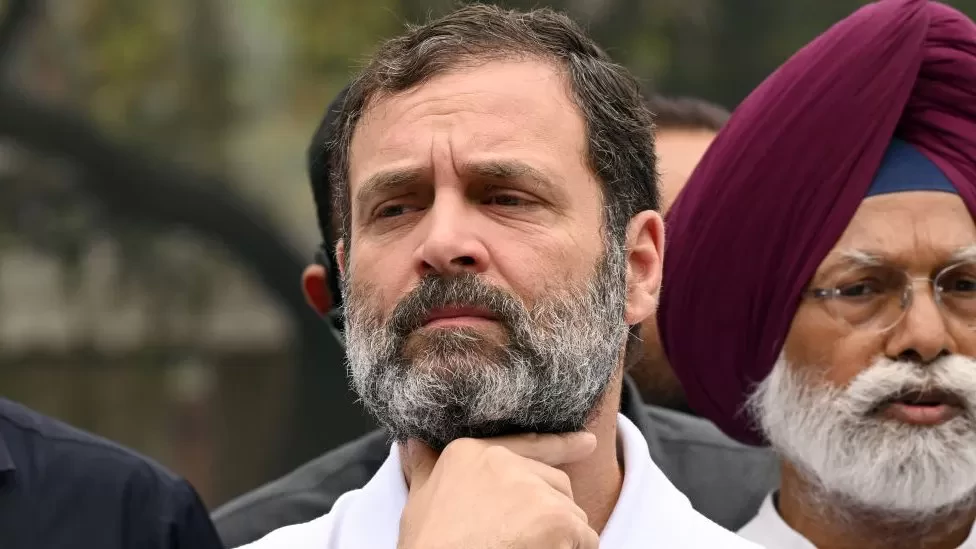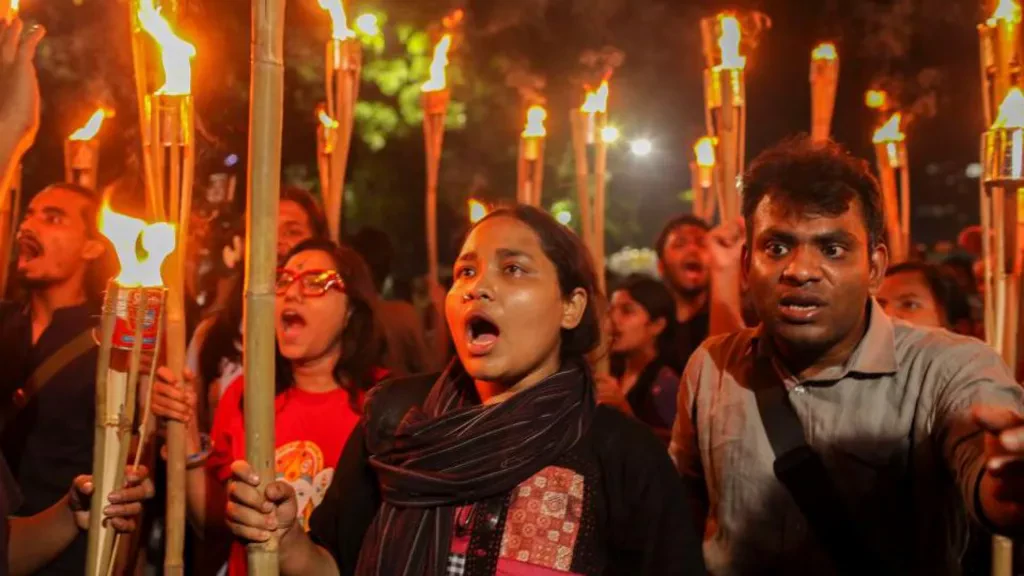Rahul Gandhi: India's Congress leader sentenced to jail for Modi 'thieves' remark
Indian opposition leader Rahul Gandhi has been sentenced to two years in prison in a criminal defamation case.

MARCH 23: Mr Gandhi was convicted by the court in Gujarat state for 2019 comments about Prime Minister Narendra Modi's surname during an election rally.
He will not go to jail immediately - he has been given bail for 30 days and can file an appeal against his conviction.
The Congress party MP was present in court for sentencing, which comes a year before general elections are due.
Speaking at an election rally in Karnataka state in April 2019, ahead of the last general election, Mr Gandhi had said: "Why do all thieves have Modi as their surname? Nirav Modi, Lalit Modi, Narendra Modi."
Nirav Modi is a fugitive Indian diamond tycoon while Lalit Modi is a former chief of the Indian Premier League who has been banned for life by the country's cricket board.
The case was filed on the basis of a complaint by Purnesh Modi, a lawmaker from India's governing Bharatiya Janata Party, who said that Mr Gandhi's comments had defamed the entire Modi community.
But some have said they are puzzled by the order.
Legal scholar Gautam Bhatia tweeted that "references to a generic class of persons" - surnames in this case - are not "actionable unless an individual can show a direct reference to themselves".
"If a man says 'all lawyers are thieves', then I, as a lawyer, cannot file case against him for defamation unless I can show its imputation aimed at me," Mr Bhatia said.
The Congress party tweeted that Mr Gandhi will file an appeal and "we will fight and win".
Mr Gandhi has not commented publicly yet but has tweeted a quote in Hindi from Mahatma Gandhi: "My religion is based on truth and non-violence. Truth is my God, and non-violence the means to get it."
His lawyer, Kirit Panwala, told BBC Gujarati that Mr Gandhi had told the judge after the order that he had made the speech "in favour of democracy".
He also said that their defence of Mr Gandhi was based on four points: "Firstly, Mr Gandhi is not a resident of Gujarat and so, before the complaint, an inquiry should be conducted. Secondly, there is no community named Modi. Thirdly, there is no association of people with Modi as their surname and lastly, there was no ill intention behind Mr Gandhi's speech."
India's criminal defamation law is a British-era legislation under which there can be a maximum prison sentence of two years or a fine or both.
Free speech advocates have often argued that the law goes against the principles of freedom and that it is is used by politicians to silence their critics.
In 2016, some top Indian politicians including Mr Gandhi had filed legal pleas arguing for defamation to be decriminalised. But India's Supreme Court upheld the validity of the law, saying that the "right to free speech cannot mean that a citizen can defame the other".










Leave Comment